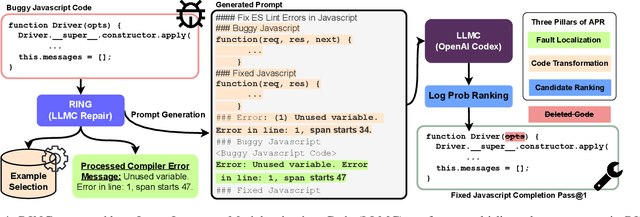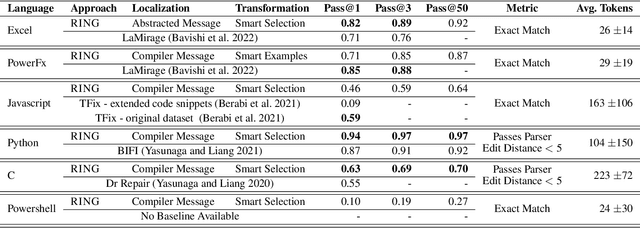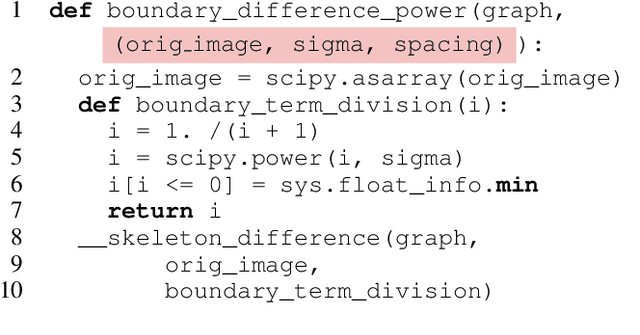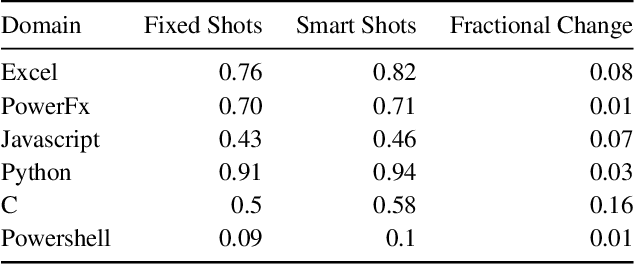Repair Is Nearly Generation: Multilingual Program Repair with LLMs
Paper and Code
Aug 24, 2022



Most programmers make mistakes when writing code. Some of these mistakes are small and require few edits to the original program - a class of errors recently termed last mile mistakes. These errors break the flow for experienced developers and can stump novice programmers. Existing automated repair techniques targeting this class of errors are domain-specific and do not easily carry over to new domains. Transferring symbolic approaches requires substantial engineering and neural approaches require data and retraining. We introduce RING, a multilingual repair engine powered by a large language model trained on code (LLMC) such as Codex. Such a multilingual engine enables a flipped model for programming assistance, one where the programmer writes code and the AI assistance suggests fixes, compared to traditional code suggestion technology. Taking inspiration from the way programmers manually fix bugs, we show that a prompt-based strategy that conceptualizes repair as localization, transformation, and candidate ranking, can successfully repair programs in multiple domains with minimal effort. We present the first results for such a multilingual repair engine by evaluating on 6 different domains and comparing performance to domain-specific repair engines. We show that RING can outperform domain-specific repair engines in 3 of these domains. We also identify directions for future research using LLMCs for multilingual repair.
 Add to Chrome
Add to Chrome Add to Firefox
Add to Firefox Add to Edge
Add to Edge